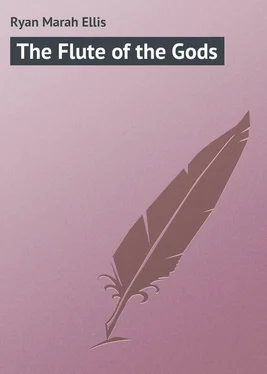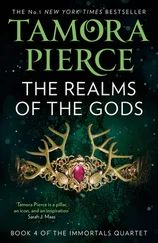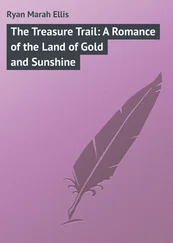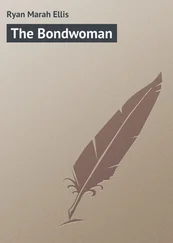Marah Ryan - The Flute of the Gods
Здесь есть возможность читать онлайн «Marah Ryan - The Flute of the Gods» — ознакомительный отрывок электронной книги совершенно бесплатно, а после прочтения отрывка купить полную версию. В некоторых случаях можно слушать аудио, скачать через торрент в формате fb2 и присутствует краткое содержание. Жанр: foreign_prose, на английском языке. Описание произведения, (предисловие) а так же отзывы посетителей доступны на портале библиотеки ЛибКат.
- Название:The Flute of the Gods
- Автор:
- Жанр:
- Год:неизвестен
- ISBN:нет данных
- Рейтинг книги:3 / 5. Голосов: 1
-
Избранное:Добавить в избранное
- Отзывы:
-
Ваша оценка:
- 60
- 1
- 2
- 3
- 4
- 5
The Flute of the Gods: краткое содержание, описание и аннотация
Предлагаем к чтению аннотацию, описание, краткое содержание или предисловие (зависит от того, что написал сам автор книги «The Flute of the Gods»). Если вы не нашли необходимую информацию о книге — напишите в комментариях, мы постараемся отыскать её.
The Flute of the Gods — читать онлайн ознакомительный отрывок
Ниже представлен текст книги, разбитый по страницам. Система сохранения места последней прочитанной страницы, позволяет с удобством читать онлайн бесплатно книгу «The Flute of the Gods», без необходимости каждый раз заново искать на чём Вы остановились. Поставьте закладку, и сможете в любой момент перейти на страницу, на которой закончили чтение.
Интервал:
Закладка:
And at Ah-ko a little tree from the urn, and some of the seeds were given, but the winter to come was a hard winter, and the ice killed them, so the fruit from the strange far-off trails was not for Ah-ko.
They had rested, and were about to depart, when Tahn-té, watching with other boys the war between two eagles poised high above the enchanted mesa, saw on the plain far below the figure of an Indian runner, his body a dark moving line against the yellow bloom spread like a great blanket of flowers from Mount Spin-eh down and across the land.
He only watched because the man ran well–almost as well as a Hopi–and did not see in the glistening bronze body the herald of a new day in the land.
At the edge of the cliff they watched to see him appear and disappear in the length of the great stairway of the fortress. Some day each boy among them would also be a runner in his turn for ceremonial reasons, and it is well to note how the trusted men make the finish.
It is not easy to run up the two hundred foot wall of Ah-ko at the end of a long trail, but this man, conscious of watchers, leaped the last few steps and stood among them. Only an instant he halted, in surprise face to face with the boy Tahn-té who stood nude and fair beside dark companions.
Tahn-té was accustomed to the curious regard of strangers who visited the country of Tusayan. He had heard so often that he was a child of the sky that this explanation of his fairer skin seemed to him a very clear and logical explanation of the case.
But after the runner had been listened to by the governor and fed, and a herald from the terraced housetop had called aloud the startling message brought by him to the people of Ah-ko, the boy went away from the other boys, and wrinkled his brows in boyish thought, and stared across to the ancient crater of Se-po-chineh until his mother sought him, and found him.
“You are weary, my son, that you come alone from the others?”
“The others only talk yet tell nothing,” he said gloomily, “and of that which the runner tells I wish to hear much. You hear what he says of white men like gods who come from the south searching for the blue stones and the stone of the sun fire, and taming strange beasts to carry them on their way?”
“Yes, it is true, I hear,” she said.
“And you think it is magic? Is it that they are gods–or demons–or men like these men?”
“If they were gods would they not know where the stones of the sunlight are hidden in the earth?”
“Are they children of the moon or the sun, or the stars that they are white?” he demanded.
“It may be so,” she said very lowly, conscious that his gloomy eyes were trying to make her see what he felt, but she must not see, and she spoke with averted head.
Then he rose and stood erect and stretched out his arms their widest and surveyed himself with measuring gaze and a certain pride, but the other thought came back with its gloom and he laughed shortly with disdain of himself.
“I have felt stronger than all the boys–always! Do you know why that has been? I know now why–it was because I stood alone,–I was the only child of the light and I dreamed things of that. Now a man tells us there are many such people, and their magic is great, and my strength goes because of the many!”
His mother stroked his hand reassuringly. “Na-vin (my own),” she said steadily. “I have felt your dreams, and I also dream them. Fear no one born of the light or of the darkness, and when you are a man you will have all your strength–and more than your own strength.”
“You say that, my mother?”
She held her head erect now and looked straight and steadily into the eyes of her son.
“I say it!”
And he remembered that it was more than his mother who spoke, it was the Medicine Woman of the Twilight and of the strange places, and the far off thoughts.
He lifted her hand and breathed on it. “I am again Tahn-té,” he said, and smiled. “You make me find myself!”
CHAPTER IV
WHITE SEEKERS OF TREASURE
When Alvarado marched his band of adventurers into the pueblo Ua-lano to the sound of tom-toms and flutes of welcome, an Indian woman with a slender boy stood by the gate and watched the welcome of the strangers.
An exceedingly reckless, rakish lot they were–this flower of the Mexican forces who the Viceroy was only too willing should explore all lands, and seas, so they kept themselves away from the capitol.
The women and the children shrank back as the horses clattered in. Some laughed to cover their fear, others threw prayer meal, and their fright made the commander notice the blanketed figure of the woman whose eyes alone shone above the draperies held close, and who stared so keenly into each white face as they passed.
“Who is the dame in the mask of the blanket?” he asked of his host Chief Bigotes–the courteous barbarian who had crossed seventy leagues of the desert to ask that his village be honored by the god-like ones from the south.
Bigotes looked at her, did not know, but after inquiring came back and spoke.
“It is a strange thing but it is true,” said the interpreter, “she is called the One from the Twilight Land. She went as a girl from Te-hua to Ah-ko for study with the medicine people of one order there. One night it was as if she go into the earth, or up in the sky. No one ever see her any more. It was the year of the fire of the star across the sky. Now she comes from the west and so great a medicine woman is she that leading men are sent to guard her on the trail to the Te-hua people–and to guard her son.”
“Faith! Your strangers are a handsome pair. The boy would make a fine page in a civilized land. He is the fairest Indian I’ve seen.”
The boy knew that his mother and himself were objects of query, and stood stolid, erect and disdainful,–the stranger should see that all their clanking iron, their dominating swagger, and their trained animals could not make him move an eyelash of wonder.
But to his mother he said:
“They have much that we will need if we ever fight them; their clanking clothes and shields can break many arrows.”
“Why do you talk of fighting?”
“I do not know why. It is all I thought of as I looked at them.”
One thing interested him more than all else, and that was a man in a grey robe who carried a book, and turned the pages in absorbed meditation; sometimes his reading was half aloud, and Tahn-té slipped near each time he could, for to him it looked as if the man talked to the strange white paper.–He thought it must be some sort of high magic, and of all he saw in the new comers, he coveted most of the contents of those pages,–it was more wonderful than the clanging metal of their equipment.
A tiny elf-like girl followed Tahn-té as a lost puppy would, until he asked her name, and was told it was Yahn–that she lived in Povi-whah by the big river and that her mother was visiting some society of which she was a member,–that she was in the kiva and could not be seen for four days and nights, and in the coming of the beasts and the strangers, her caretaker had lost her, and the home where she had stayed last night she did not know.
She knew only she was lost, and some boys had told her that the new kind of beasts ate little girls. She did not weep or call, but she tried to keep her little nude body out of sight behind Tahn-té if a horse or a mule turned its head in the direction she was.
So glad she was to be protected that she told him all her woes in the strange town. The greatest was that a dog had taken from her hand the roasted ear of corn she had been eating, and she wished Ka-yemo was there, he would have maybe killed the dog.
Inquiry disclosed the fact that Ka-yemo was not her brother; he lived in Provi-whah. Her own name was Yahn. No:–it was not a Te-hua name. It was Apache, for her mother was Apache–and the Te-hua men had caught her when they were hunting, and always her mother had told Yahn to stay close to the houses, for hunting enemies might bear her away into slavery–and Yahn was not certain but these men on the beasts might be hunters.
Читать дальшеИнтервал:
Закладка:
Похожие книги на «The Flute of the Gods»
Представляем Вашему вниманию похожие книги на «The Flute of the Gods» списком для выбора. Мы отобрали схожую по названию и смыслу литературу в надежде предоставить читателям больше вариантов отыскать новые, интересные, ещё непрочитанные произведения.
Обсуждение, отзывы о книге «The Flute of the Gods» и просто собственные мнения читателей. Оставьте ваши комментарии, напишите, что Вы думаете о произведении, его смысле или главных героях. Укажите что конкретно понравилось, а что нет, и почему Вы так считаете.












